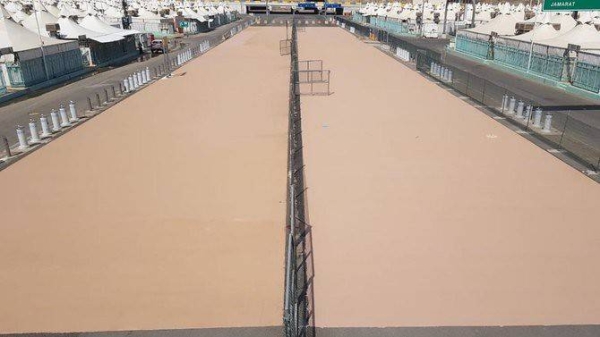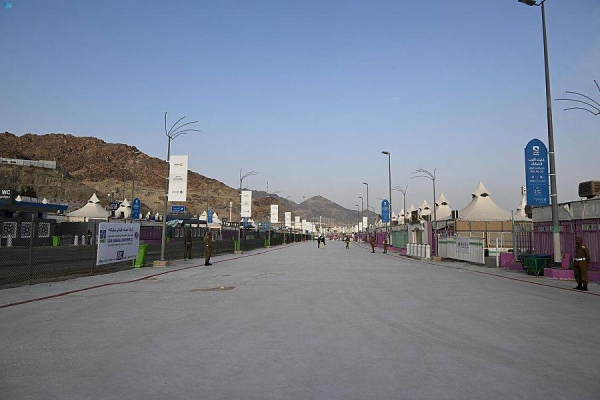
The Saudi authorities are implementing a project to apply heat-blocking coating at the holy sites in Makkah. The General Authority for Roads (GAR), in cooperation with the Ministry of Municipal, Rural Affairs and Housing, and a number of relevant authorities, have already implemented this experiment in the Jamarat stoning area with the aim of giving some respite for the pilgrims during the upcoming annual pilgrimage of Hajj that coincides with the extreme summer season.
This project was implemented on the basis of a research study experiment on cooling asphalt surfaces at the holy sites. The GAR, in partnership with the Ministry of Municipality, Rural Affairs and Housing, had experimented this technology several months ago in the Riyadh region. This experiment was carried out in view of the fact that roads absorb temperature during the daytime, while the road temperature sometimes reaches 70 degrees Celsius. The roads scientifically discharge this heat at night. This is known as a scientific phenomenon called the ‘heat island’ that leads to increased energy consumption and air pollution.
The research experiment was based on addressing the ‘heat island phenomenon’ by using cold pavements with homemade materials that have the ability to absorb smaller amounts of solar radiation. The degree of its surface temperature is lower than that of traditional pavements, and this material is suitable for roads surrounding residential areas.
This experiment aims to reduce the temperature in neighborhoods and residential areas, as well as to bring down the energy used to cool buildings and reduce the effects of climate change. This technology contributes to providing a more comfortable environment in waiting areas and areas where people congregate.
It is noteworthy that the Makkah Mayoralty had implemented in 2019 a cool project by using coating asphalt as a way to reduce heat at the holy sites. The project included the coating of the pedestrian road leading to the Jamarat complex. The coating was done over a total area of approximately 3,500 square meters to help reduce the road temperature and to serve the pilgrims.
The project, which was carried out in cooperation with the Japanese company Sumitomo Corporation, aimed to reduce the surface temperature of the walkway in the Shuaibin area. The project aimed to provide temperature reduction from 15 to 20 degrees Celsius, where temperatures will be recorded every 10 seconds during the season through sensors placed under the asphalt.
The GAR is working on developing research and practical experiments that contribute to improving the experience of road users, and achieving the objectives of the road sector strategy, which aims to enhance the safety and sustainability of the road sector, and improving the quality of the road network and the experience of its users.










